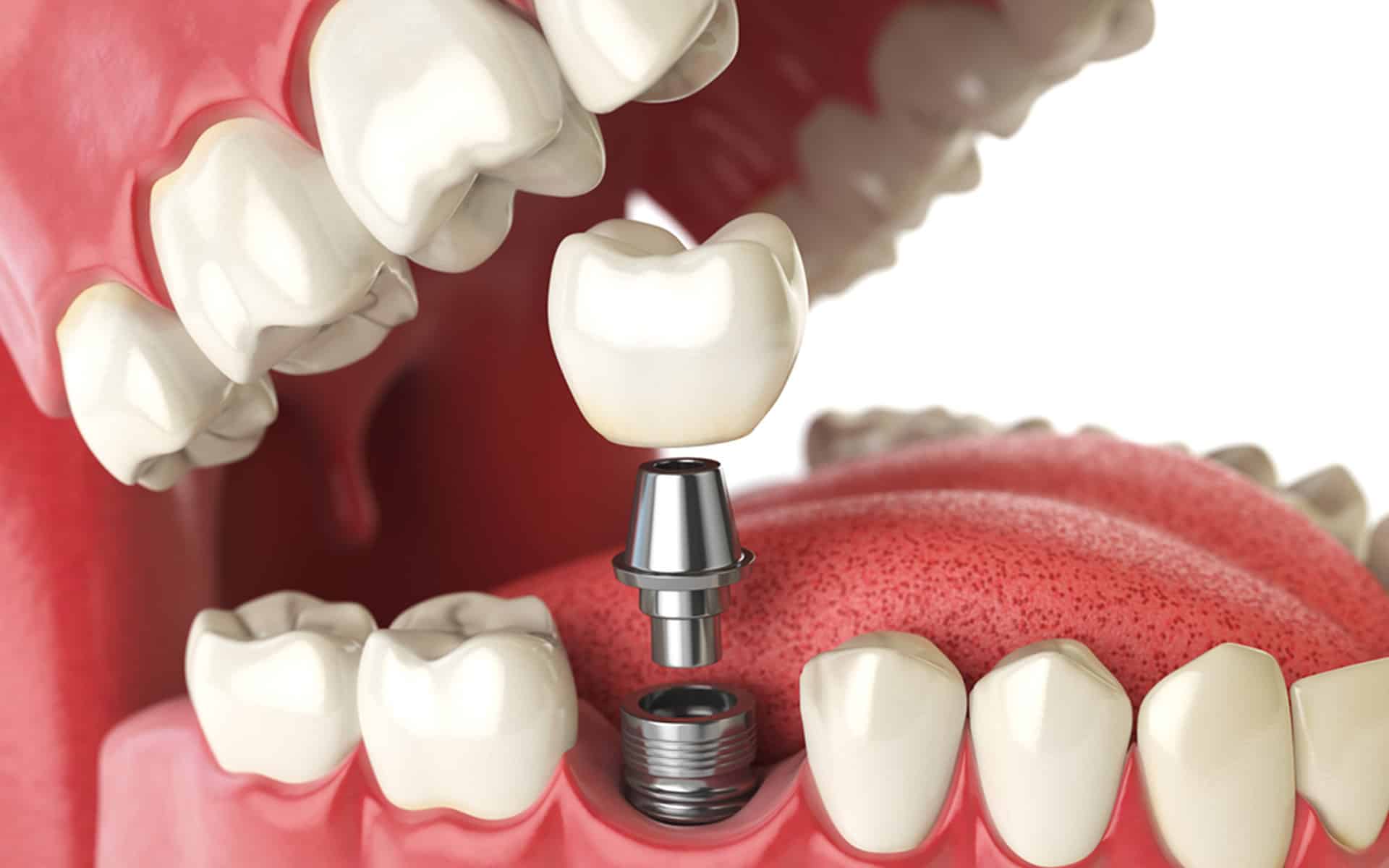As one of the most advanced and highly effective procedures in dentistry, dental implants have been around for decades not only restoring patients’ smiles but also giving them beautiful and everlasting smiles. Dental implants are comprised of three main parts. The fixture is the bottom of the implant and is the part that is physically embedded below the gum line, fusing with the jawbone to become a permanent part of your smile. The abutment is the small portion that lies right around the gum line. After the osseointegration (fusion) process has been completed, the abutment is screwed into the fixture and overtime holds the dental work.
The prosthesis refers to the dental work that is placed on top of the abutment, like a crown, bridge, or denture. This piece is cemented or screwed into the abutment if the prosthesis is a crown or bridge or snapped onto the abutment if the prosthesis is a denture. A dental implant looks virtually similar to a real tooth in every way. They not only look but also function exactly similar to a natural tooth. There are no restrictions similar to wearing dentures when someone opts for a full dental implant.
Benefits of receiving dental implants as a restorative dental measure:
1. Similarity to Natural Teeth
Dental implants near you is the closest thing to having natural teeth in terms of dental restorations. Once the implant is fused with your bone and the healing period is completed, not only does it look similar to a natural tooth, but it also feels and functions as your natural teeth would. The reason that the implant attaches well with the jaw bone is the metal they use – medical-grade titanium – to make it. Titanium is known to have a unique ability to attach quite well to living bone. This fusing process happens during the months after the procedure is done. Once it is completed and the abutment and prosthesis are attached, there is virtually no difference in the look, feel and function of the implant to natural teeth.
2. Durability
Due to the dental implants fusing to the jawbone, the durability and efficiency of this procedure are very high. When compared with other dental restoration procedures, getting a dental implant can last a lifetime if adequately cared for. Your dentist in Winnipeg will provide you with the best quality materials to ensure the implant can last as long as it’s supposed to.
3. Preventing Bone-loss that Follows Decayed Teeth
Even though it is not as directly visible as the loss of a tooth, one of the major damages that occur after the loss of a natural tooth is bone loss. This occurs because the bone is the living tissue upon which teeth are located. This living tissue requires stimulation in order to keep rebuilding itself and stay alive and healthy. This particular stimulation of your jawbone happens from the existing teeth. When a tooth decays, falls out or is extracted, the bone that was under that tooth begins to eventually resorb.
When this happens, one of the most visible things that happen is your face losing its shape. If you are someone who plays sports with the risk of getting hit on or around the jaw bone, the bone loss after a tooth is extracted makes the jaw more prone to fracture as well. A dental implant can prevent this from happening since it stabilizes the jaw bone back to normal with the use of a metal implant that fuses into the natural bone.
4. Safety for Natural Teeth
The reason for extracting an infected tooth is not only to give you relief from the pain that occurs by a decaying tooth but also to protect the other teeth in your mouth as well. However, many tooth replacement procedures that follow a tooth extraction such as bridges and dentures often put extra pressure on the natural teeth, which increases the possibility of them having problems later on.
A bridge treatment requires support from the adjacent teeth. Partial dentures also require support from the surrounding teeth to hold on, which may cause them to loosen over a period of time, even though there are no immediate risks. A dental implant stands on its own and therefore does not cause any added stress or pressure on existing teeth.
5. Easy Maintenance
Dental implants are one of the easiest tooth replacement procedures when it comes to aftercare. It does not require any special maintenance apart from maintaining good general oral hygiene unlike dentures or other similar procedures. Since it is a fixed treatment, you do not need to remove them and care for them daily other than conducting your regular oral hygiene routine. Receiving a dental implant from Winnipeg dental clinic makes for a good long-term investment for your oral health.

